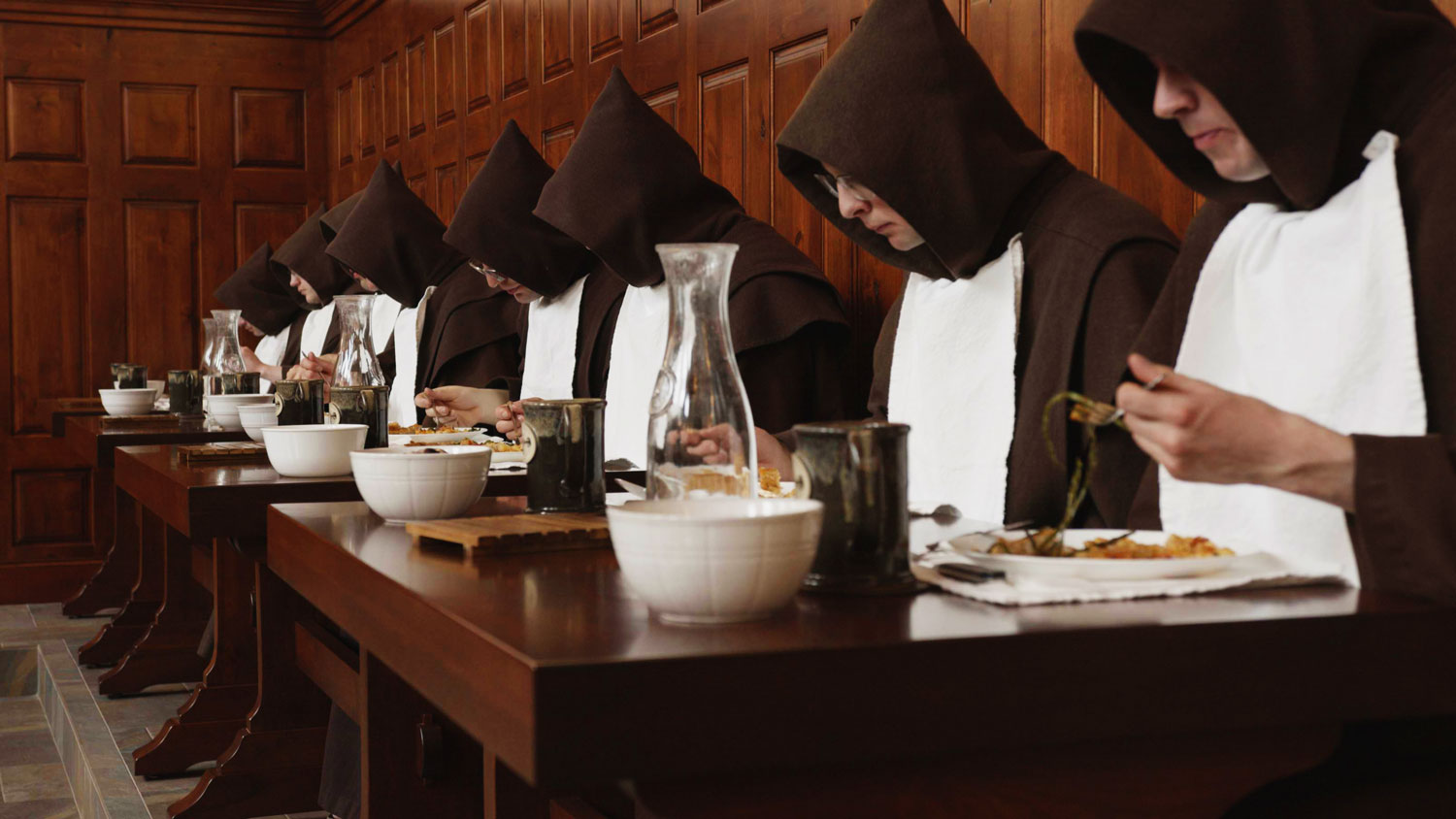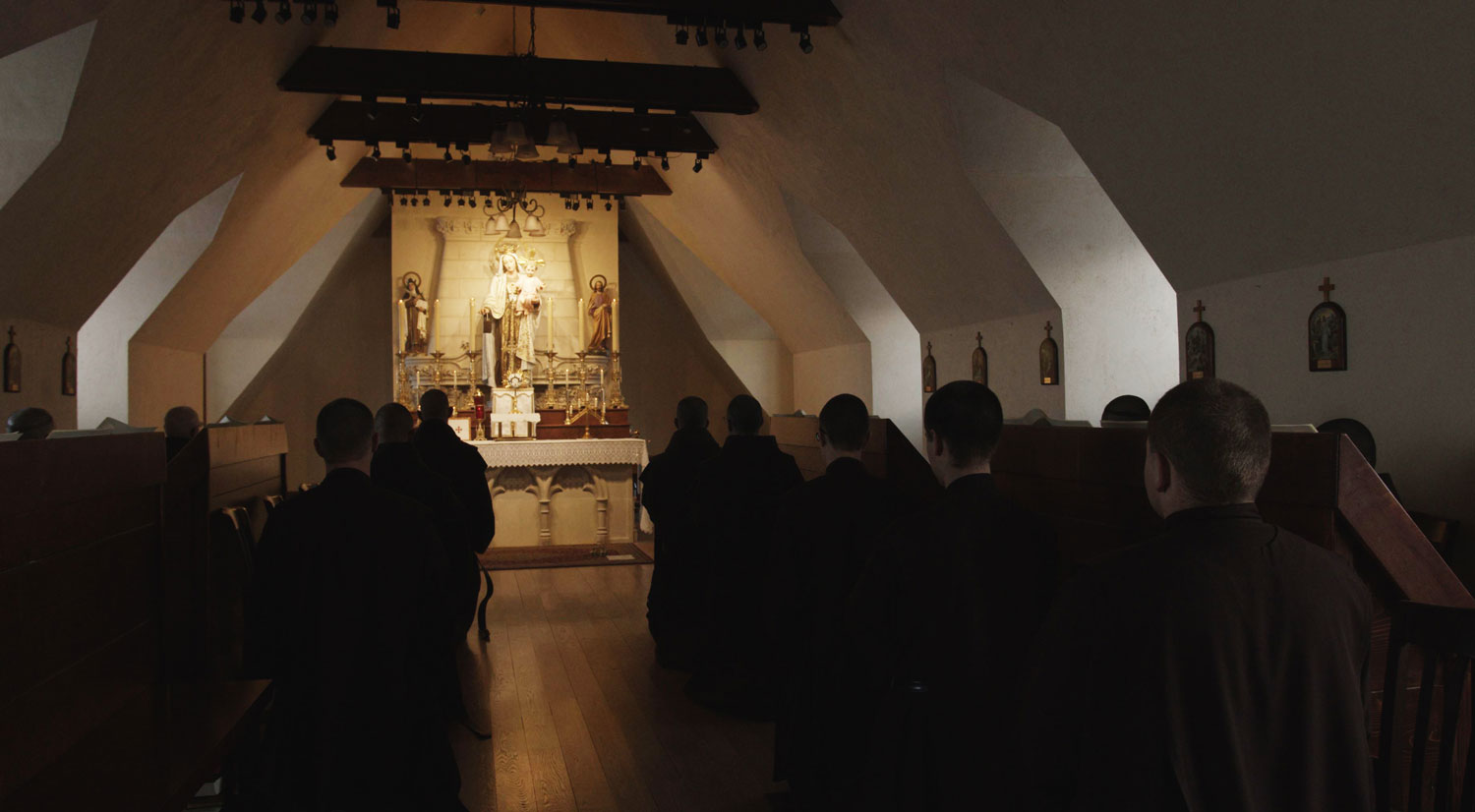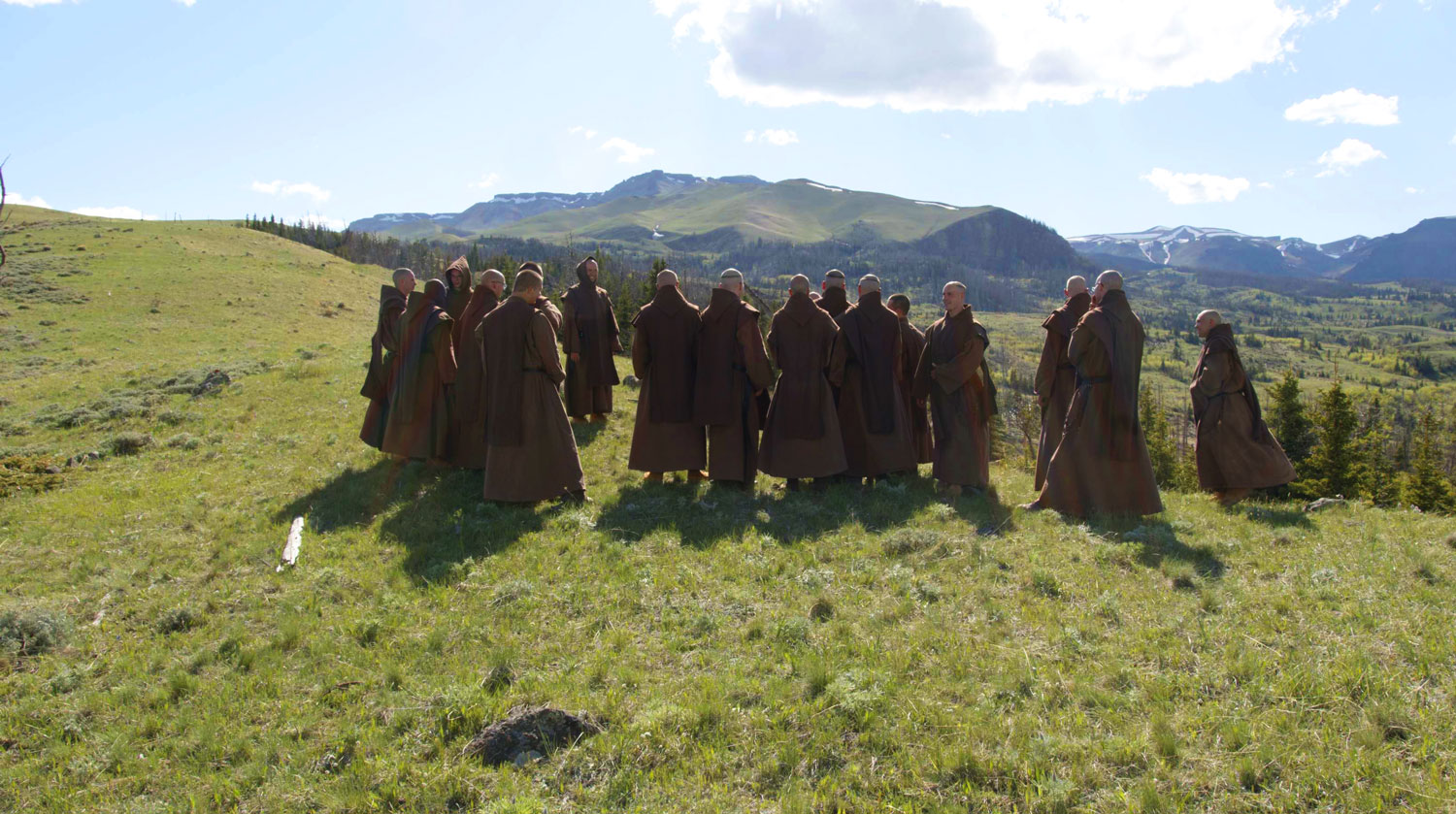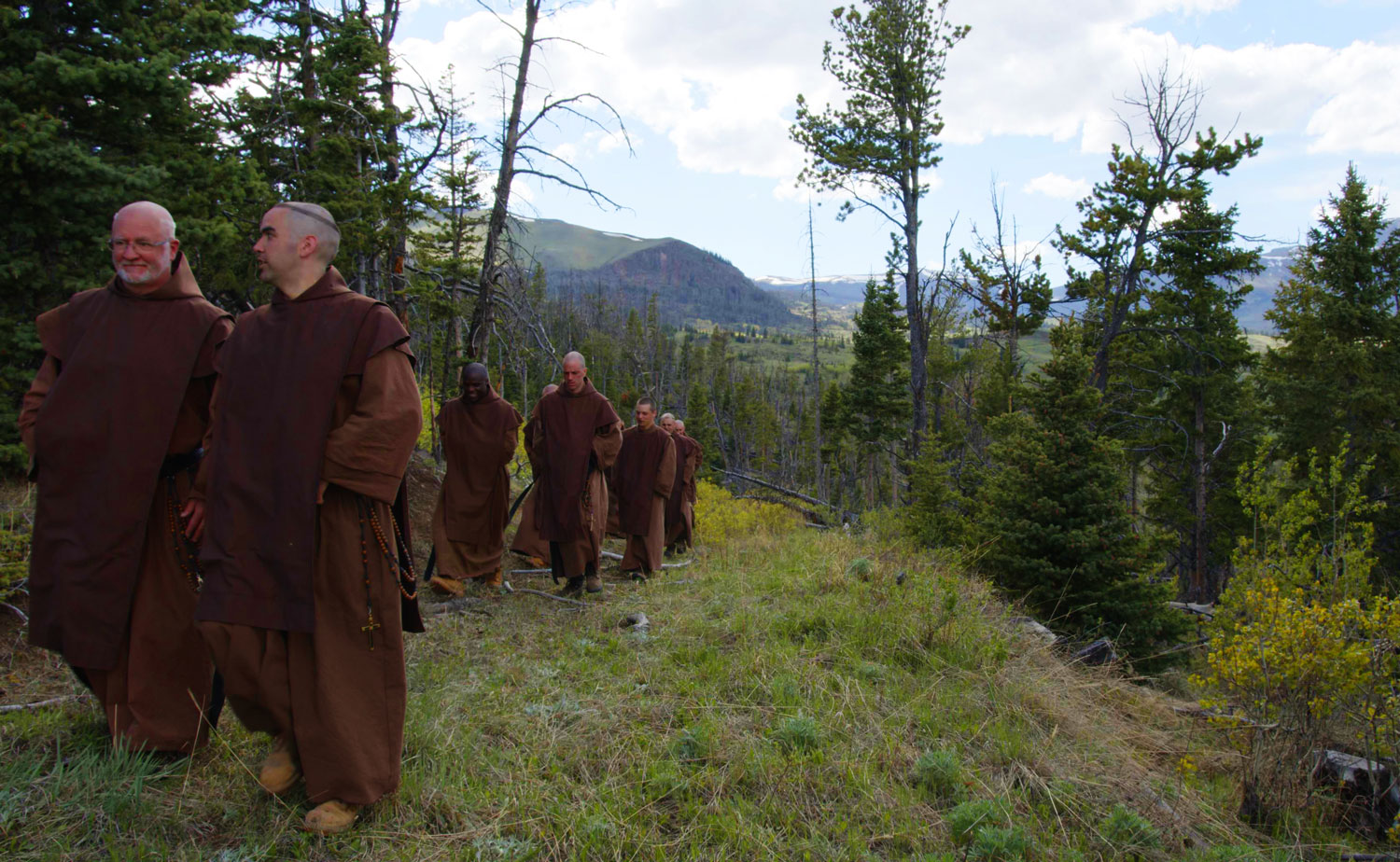What is a Horarium?
The Monastic Schedule
What is a Horarium? A Horarium is the schedule that the monks live everyday within the monastery. It is the set time for prayers and for various community functions that sanctify every moment of the day. But is it only a schedule of events in the monastery? Or is it much more? It is much more since it represents the very life of the community. Below we give an explanation of the Horarium and the various hours of the day that make up the Carmelite life.
Sections
- General Explanation of Horariums
- History of the Hours
- Theological Purpose of the Horarium
- The Specific Hours of the Liturgy
- The Role of a Horarium in the Monastery
General Explanation of Horariums
The Hours

Horarium is a Latin word from hora which stands for “the hours.” A Horarium is a schedule for the hours of the day especially within a religious house or seminary. The hours represented by a Horarium is specifically about the times that the divine liturgy is prayer throughout the day by priests and religious. These are called the canonical hours, since they are obligatory for priests and religious. Priests and religious pray the breviary as precise time of the day as determined by the Church for her sacred liturgy.
History of the Horarium of Hours
The Monastic Schedule
Praying at certain times of the day regularly a very ancient practice. This practice certainly comes from the Hebrew people who sanctified certain times of the day each day through prayers and psalms. This practice can be read about in the psalms themselves. Psalm 54:18 says, “Evening and morning, and at noon I will speak and declare: and he shall hear my voice.” Likewise, psalm 118:164 states, “Seven times a day I have given praise to thee, for the judgments of thy justice.” Psalm 118 continues explaining that this daily prayer helps with fulfilling the law of the Lord with love. Those who wished to give God His due honor would pray regularly at these times daily.
The Apostles continued in this tradition after Christ ascended into heaven. We read in Acts 10:9 about St. Peter leading the church by example. Acts says, “whilst they were going on their journey, and drawing nigh to the city, Peter went up to the higher parts of the house to pray, about the sixth hour.” St. Paul gave example by praying the hours. Acts says, “And at midnight, Paul and Silas praying, praised God. And they that were in prison, heard them.”
By the fifth century, all of the canonical hours of the divine office were solidified for the clergy and religious of the church. They sang or recited the psalms, readings and hymns.
Theological Purpose of the Horarium
True Worship of Soul.

Originally it is believed that the divine office began as a recital of psalms before the celebration of the Eucharist at mass. It is possible that the mass of the catechumens was the recital of the psalms before the Eucharist. To this day, the praying of each of the hours in the Horarium is viewed as an extension of mass and the liturgy. The hours are a continuation of the public prayer of the Church that finds its apex and climax in the offering of Christ in the Blessed Sacrament to the Father within mass.
Since the liturgical hours are a continuation of the priestly act at holy mass, it is especially fulfilled by priests who continue their public ministry within each of the hours of the divine office. Priests especially and in an essentially different way from others continue this public form of latria. However, all of the faithful are encouraged to participate in the liturgy of the hours just as at holy mass.
The hours of the liturgy are meant to train all the faithful in perfect worship of God. This perfect worship is especially found within the hearts of the faithful who with true virtue give God the due worship He deserves from their hearts. The first and primary sanctuary is the soul of each of the faithful. Christ wishes to reign there within hearts where God who deserves be loved above all things has His proper place of divine latria. The Horarium is meant to train each individual who follows it in giving God primary place at every moment of the day.
The liturgy also reflects the heavenly liturgy where we will be able to actually give God our full attention at every moment in heaven. On earth we cannot possibly give God every moment of attention. This is simply impossible. But by keeping the hours we enter as far as possible into that perpetual worship offered by the saints in heaven.
The Specific Hours of the Liturgy
The Divine Office
The Horarium of the Carmelite Liturgy contains the hours of Matins, Lauds, Prime, Terce, Sext, None, Vespers and Compline. That makes for eight times that out monks meet together for prayer in the chapel besides Holy Mass, except that Matins and Lauds are like one office done at midnight.

Our monks pray all of these hours together as a community within the chapel. Where we can we chant the office with the beautiful ancient Carmelite chants. It feels nostalgic singing chants that were in existence when St. Berthold first went to Mt. Carmel in 1150 to build a monastery. Many of the chants we sing daily were widely used at this time and for all intents and purposes were probably chanted by the first hermits on the Mount of Carmel. How beautiful it is to chant these Latin hymns and responsories on our New Mount Carmel today as a united Carmelite community in worship.
The Role of a Horarium in the Monastery
The Life


Just as the Horarium for all priests, religious and faithful is meant to tach their hearts to pray always, so it is with our Horarium within our cloistered Carmel. We take moments of leisurely prayer wherein we can refocus our primary attention just on God Himself. This happens during the divine office, holy mass, mental prayer, the rosary, examination of conscience, etc. But then there are also time of manual labor or recreation with the brothers where God wishes that we share what we have received from Him in prayer. True virtue is proven within the community life where we show our love for God through our love for our neighbors.
The Horarium is like the glue that keeps the whole community united to God and to each other. It is very freeing to always know what God’s will is at each moment of the day. Holiness consists in total abandonment to God and His work, so that the hours are a great help in this. A monk always knows that he is doing God’s will. This frees his heart and his mind to just love God, and to love his neighbor also as a proof of his love for God.
The Horarium solidifies the divine atmosphere within the cloister. Everything is divine by being centered around God and the true worship of God at every moment of each day.